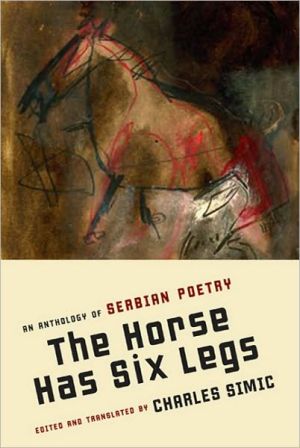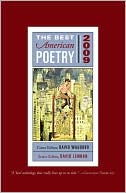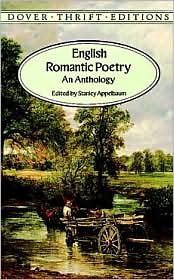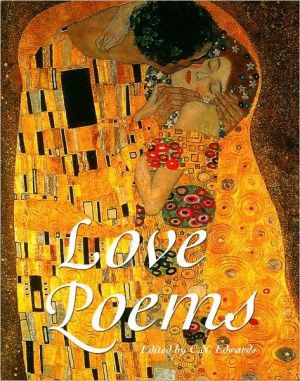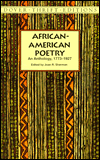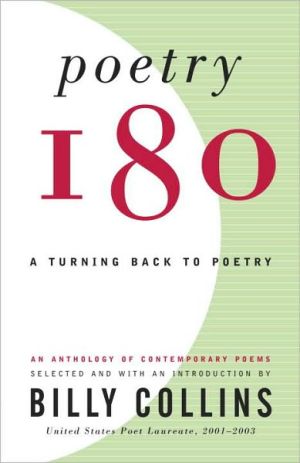The Horse Has Six Legs: An Anthology of Serbian Poetry
THE UPDATED AND EXPANDED EDITION OF THIS VITAL ANTHOLOGY, WITH A NEW INTRODUCTION BY EDITOR AND TRANSLATOR CHARLES SIMIC\ When The Horse Has Six Legs was first published in 1992, as war and hatred tore through the Balkans, this anthology of Serbian poetry became a landmark for some of the most compelling poetry in the contemporary world. “The ironies, in 1993, of giving an award to Serbian poets will be evident to many,” Carolyn Kizer wrote in her judge’s citation for the Harold Morton Landon...
Search in google:
THE UPDATED AND EXPANDED EDITION OF THIS VITAL ANTHOLOGY, WITH A NEW INTRODUCTION BY EDITOR AND TRANSLATOR CHARLES SIMIC When The Horse Has Six Legs was first published in 1992, as war and hatred tore through the Balkans, this anthology of Serbian poetry became a landmark for some of the most compelling poetry in the contemporary world. “The ironies, in 1993, of giving an award to Serbian poets will be evident to many,” Carolyn Kizer wrote in her judge’s citation for the Harold Morton Landon Translation Award. “But the glory of great poetry is that it transcends its time and these agonized events to enter the universal realm of art.” Editor and translator Charles Simic has now updated and expanded this anthology for new readers in the twenty-first century. Simic has brought together an extraordinary range of Serbian poets, from the oral tradition of folk song to the great postwar poets, including Vasko Popa, Ivan V. Lalic, and Novica Tadic, and the new generation of poets writing now. With wild imagination, mordant humor, and vivid surrealism, Serbian poetry is rich, haunted, and intensely relevant to the world we inhabit.Publishers WeeklyDyed with pessimism, touched by modernism, and bloodied by recent history, Serbian poetry has flourished, especially over the past 40 years. Simic, a former U.S. poet laureate, grew up in Serbia, and this collection of his translations shows both vernacular vigor and sensitivity to the poets' varied temperaments—grim and laconic, satirically expansive, lyrically embittered, or jocular. The shorter first edition of his anthology, from 1992, became a classic of poems in translation: Simic (whose honors include a Pulitzer Prize) has added six poets to the original set of 18. The oldest named poet here (not counting oral-traditional songs) died just before the Second World War, while the youngest came to maturity during the violent breakup of Yugoslavia. Rasa Livada's long “Horoscope” reacts to the recent disasters of the Balkans and to the end of the Communist dream, “somewhere between the electric west and the utopian east/ that which was 10 minutes ago utopia is now reality out of reach.” The well-known Ivan Lalic comes across as a serious love poet, praising “The taste of the storm in the stalk of the invisible rose/ That you twirl absentmindedly between your fingers.” Most of the poetry, though, strikes gloomier notes. Ljubomir Slovic delivers a compact curse (“May your wife knead dust,/ rain's bread dough”), while Branko Miljkovic seeks ecstatic extremes: “Empty what's in my lap/ And take my heart... Under the empty heavens the falconers cry.” (May)
\ Publishers WeeklyDyed with pessimism, touched by modernism, and bloodied by recent history, Serbian poetry has flourished, especially over the past 40 years. Simic, a former U.S. poet laureate, grew up in Serbia, and this collection of his translations shows both vernacular vigor and sensitivity to the poets' varied temperaments—grim and laconic, satirically expansive, lyrically embittered, or jocular. The shorter first edition of his anthology, from 1992, became a classic of poems in translation: Simic (whose honors include a Pulitzer Prize) has added six poets to the original set of 18. The oldest named poet here (not counting oral-traditional songs) died just before the Second World War, while the youngest came to maturity during the violent breakup of Yugoslavia. Rasa Livada's long “Horoscope” reacts to the recent disasters of the Balkans and to the end of the Communist dream, “somewhere between the electric west and the utopian east/ that which was 10 minutes ago utopia is now reality out of reach.” The well-known Ivan Lalic comes across as a serious love poet, praising “The taste of the storm in the stalk of the invisible rose/ That you twirl absentmindedly between your fingers.” Most of the poetry, though, strikes gloomier notes. Ljubomir Slovic delivers a compact curse (“May your wife knead dust,/ rain's bread dough”), while Branko Miljkovic seeks ecstatic extremes: “Empty what's in my lap/ And take my heart... Under the empty heavens the falconers cry.” (May)\ \
